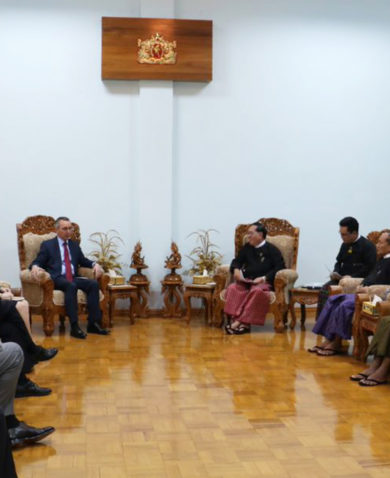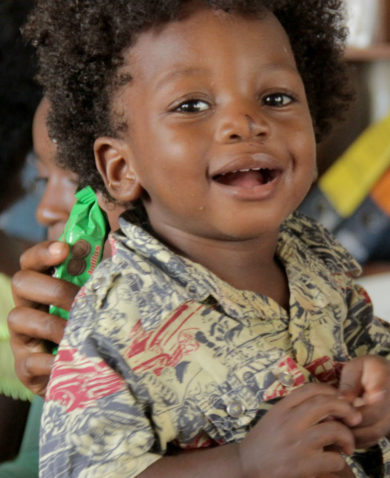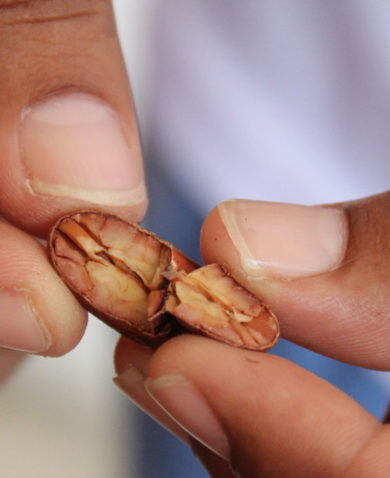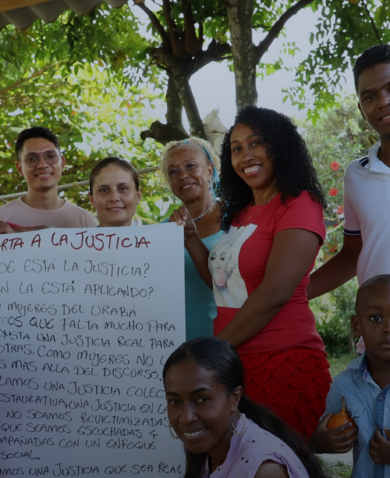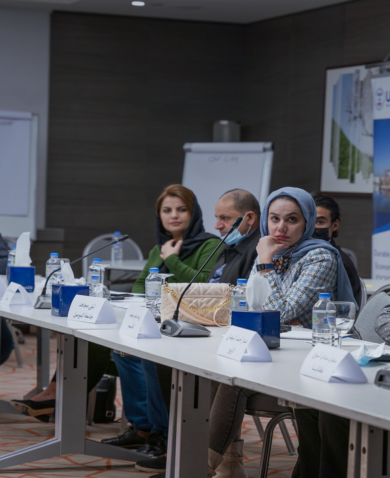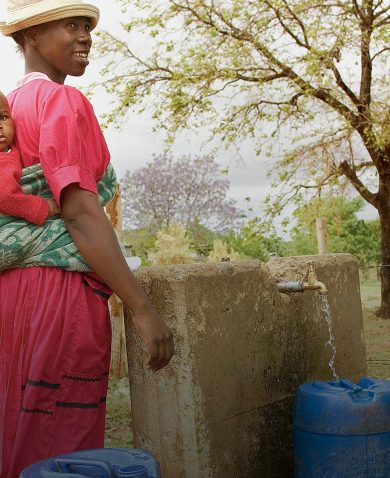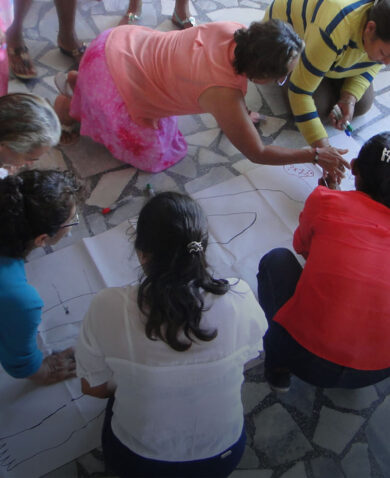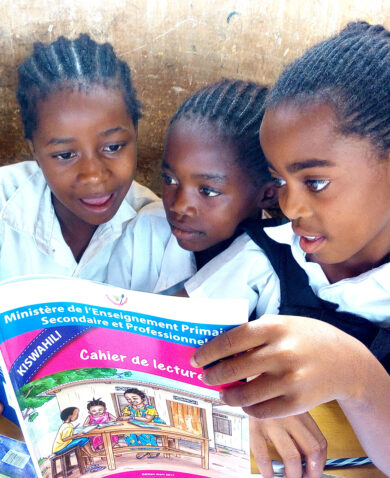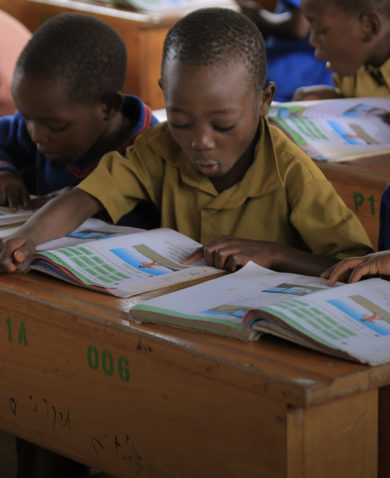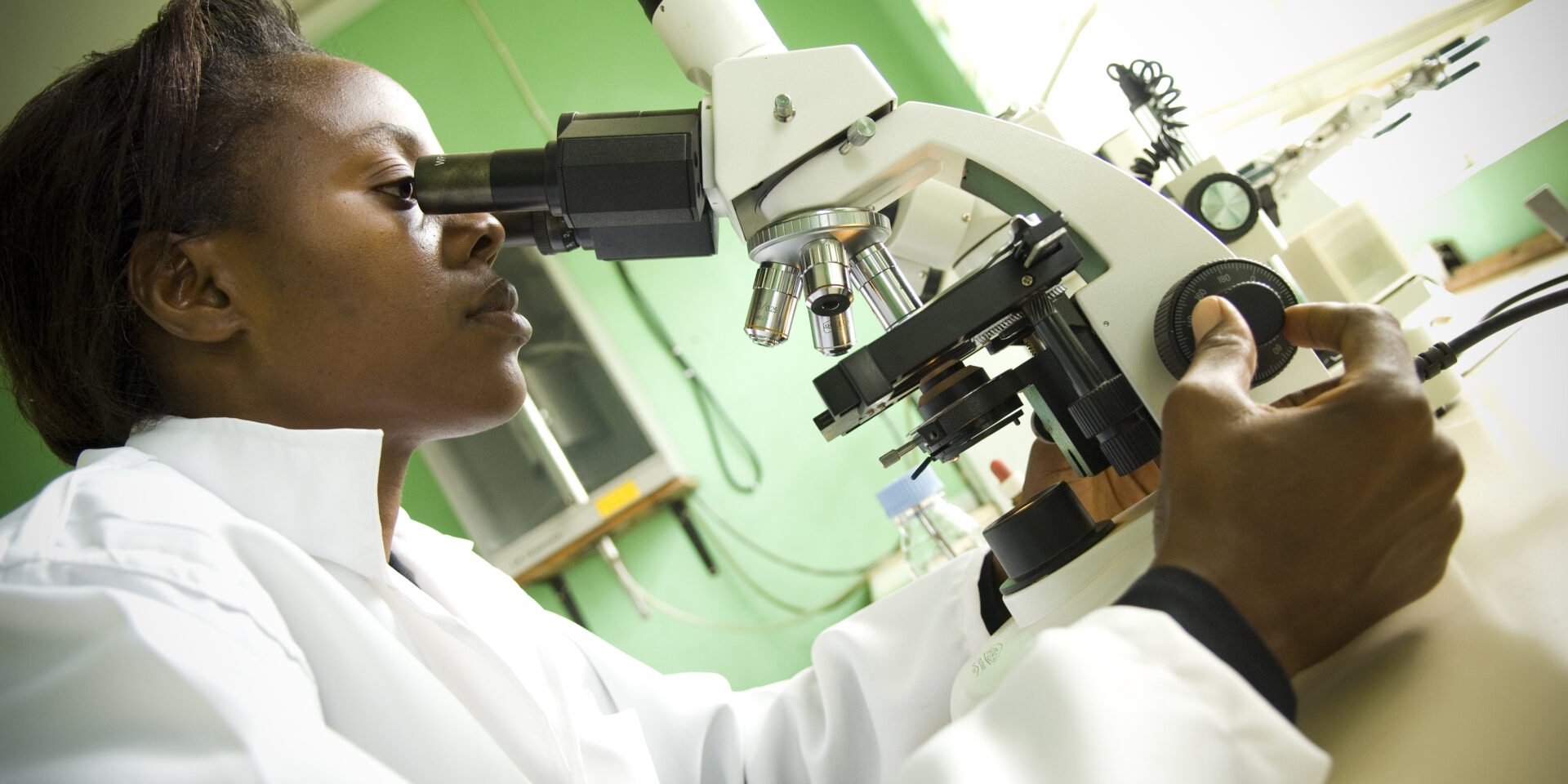
In Conversation with Joy Kiiru: Connecting Research and Evidence to Policy
September 6, 2022 | 4 Minute ReadThe effective use of research can ignite a country’s growth and economic development. In many African countries, however, there is a disconnect between the research institutions that build evidence and the governments well-positioned to leverage research. Our Communications Team sat down with development economist and researcher Joy Kiiru to understand how to bring evidence and policy together.
“Research enables us to identify how best to address the challenges that impact society. The good thing is that governments are starting to acknowledge the potential for research to drive national development.” Joy is unequivocal, and her belief in her work is easy to see. “This is my passion: ensuring that evidence can impact policy and decisionmaking by governments.”
Joy Kiiru is the Research and Innovation Systems for Africa (RISA) Fund’s Innovation and Research Advisor. The last 18 years of her life have been spent in research, from her early days as a research associate at the University of Nairobi to recent work at MIT with the Abdul Latif Jameel Poverty Action Lab.
Speaking to Joy is illuminating. She tells us that, despite several government pledges to spend more on research, few actual financial commitments have been made. Research organisations are disconnected both from each other and from government, losing the opportunity to connect evidence to policy and decisionmaking.
Despite this, Joy is hopeful, and her vision is clear. Initiatives like the UK aid funded RISA programme will create the missing linkages and help ensure that high-quality evidence is injected into the lifeblood of development interventions and public policy.
What challenges face the research sectors in the countries where RISA operates?
Governments are starting to realise that they should fund research in their countries, but their commitments have fallen short so far. In 2006, the African Union suggested its members should dedicate at least 1% of their budgets to research and development. By 2018, Kenya was allocating 0.8% of GDP to research and development, which is 95% higher than the average for Sub-Saharan Africa. Outside of Kenya and South Africa, no African countries are near hitting the target.
If we are to overcome this funding shortfall, each country must commit to a proper strategy for supporting research. The truth is that research systems in these countries are weak. National research policies and strategies are non-existent. Without these systems and practical and financial resources it is extremely difficult for research to be coherent, collaborative, and effective.
Recently, RISA conducted a political economy analysis. We were quite shocked to discover that none of the six countries (Kenya, Ghana, Nigeria, South Africa, Rwanda, and Ethiopia) we are working in have established a dedicated national research policy. National research strategies will make it easier for research organisations and other stakeholders to work toward shared objectives and for governments to harness the important role of research in national development.
Why is connecting research to policy so important?
Research evidence provides a sound basis for policy and decisionmaking. Without it, policy and decisionmakers rely on emotions or intuitions, which are not necessarily the most effective foundation for decisionmaking.
I recently asked a policymaker a simple question: what evidence do you use when debating an important issue in parliament? She said that lack of research evidence was a significant obstacle in her work, noting: “I want to make a point, and I have a gut feeling that I have a good point, but I don’t have the hard data.”
This astonished me. After the conversation, I looked around my department at the University of Nairobi. I could see plenty of people who had access to the data she needed to make her point. It showed me how this lack of connection between research and government had become a problem. An enormous amount of work is required to connect various stakeholders.If we can achieve this, new synergies and ways of working can emerge. Together, we are stronger than the sum of our parts.
How is RISA helping public institutions to collaborate?
We are trying to form linkages between governments and researchers in ways useful to the country’s development. We take a bird’s eye view, studying the current system and identifying entry points for research-policy linkages.
For example, in South Africa, we are supporting an exciting food security project. The aim is to develop a ‘Cooperation Framework’ between Kenya and South Africa to address food security issues. The framework will formalise the relationship between scientists that understand how to breed climatically adapted seeds and animal feed by forming collaborations and partnerships with smallholder farmers and the respective ministries of agriculture in Kenya and South Africa.
This connection will help smallholder farmers improve food production through technology adoption while working with policymakers to scale such efforts. We at RISA are excited about this work; we believe collaborations not only within countries but also internationally foster knowledge and technology transfer.
What can programs like RISA do to improve diversity in research systems?
Gender inequality continues to be a huge problem in African research systems. In Ethiopia, for example, only 8% of researchers are women. Whilst the average in Africa is around 1.6%. These problems are not to do with a lack of opportunities. Moreover, it is a problem created by social norms.
We see plenty of women’s education and employment schemes fail. As long as society expects women to stay at home, do chores, and raise children, how will they ever have the time for sleepless nights writing a PhD?
Research has a vital role in changing these perceptions. Unfortunately, many men must be convinced that equality is beneficial. Many men see it as a battle of the sexes; if women gain, they lose. Research can show communities and governments that if women are empowered, everyone benefits. For example, it has been forecast that if women were to have equal access to opportunities in agriculture, business productivity could rise by between 12-20%. This evidence can support the vital work of gender campaigners and others to achieve equal opportunities for women to enter currently inaccessible fields like academia.
RISA advances diversity and inclusion in research systems. The programme is partnering with the Mawazo Institute to advance the organisation’s mission and support early-career African women scholars to strengthen their research capacity, policy influence, and public engagement. Through the partnership with Mawazo, RISA supported at least 40 early-career women scholars and researchers in eastern Africa with resources to advance their scholarly careers through professional development courses tailored to build their research, public engagements, and research communication capacity. The partnership also provided participant researchers with mentoring and networking opportunities.
Banner image caption: A Plant Quarantine and Phytosanitary Service laboratory technician inspects jatropha seeds — whose oil is used to make soap or as fuel in special diesel engines — at the institution’s headquarters in Mt. Makulu, near Lusaka.
Posts on the blog represent the views of the authors and do not necessarily represent the views of Chemonics.








